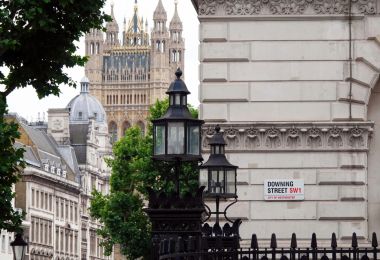Conversion therapy ban will criminalise Christians and parents, Parliament hears

Members of Parliament have warned that both parents and pastors stand to be criminalised if legislation to ban so-called conversion therapy is passed into law.
The Conversion Therapy Prohibition (Sexual Orientation and Gender Identity) Bill, brought by Baroness Burt of Solihull, had its second reading in the House of Lords on Friday.
Peers warned that the current draft of the bill is too broad and will undermine free speech, religious freedom and parental rights.
Lord Morrow, chairman of the Democratic Unionist Party (DUP), said the bill as it currently stands would damage legitimate free speech and private family life.
"I do not think the public would forgive us if we passed a law which exposed parents to huge fines simply because they do not want their kids to get caught up in the social contagion that undoubtedly exists around trans issues, and the prospect of church ministers being fined for harmlessly upholding their beliefs within their churches is not one that any democrat, Liberal or otherwise, should welcome," he said.
He also disagreed with claims that the bill was not about preventing harm, abuse or coercion, but about targeting opinions.
"None of these words appears in the Bill. It is about punishing what some people regard as wrong opinions, and that is not the kind of law any of us should be willing to go along with," he said.
The Bishop of Bristol, Vivienne Faull, said she was not convinced that the current text and its "lack of agreed definition" would give a "safe space" to Christians and others who want to seek counselling to help them live celibate lives or marry someone of the opposite sex.
She added that any definition seeking to protect from harm must also continue "to preserve our current liberties".
Lord Strathcarron warned that silent free speech in the form of silent prayers would also fall under the proposed ban, and that all religious leaders would be at risk of prosecution.
"Thus, we have a new crime: prayer crime," he said.
"Ban Conversion Therapy's founders say that a ban must cover 'gentle, non-coercive prayer', before going on to confirm that prayer has a 'pernicious power', and then linking prayer and corrective rape. Humanists UK says that the ban must cover repentances, wilfully ignoring that repentance is a core belief of the Christian faith.
"As it is drafted, will our own right reverend Prelates also face prosecution, if, for example, at Sunday school they were to read from any of St Paul's Epistles to the Romans, Galatians or Corinthians or from the Hebrews or the Epistle of James?"
He said the Bill would criminalise parents simply for discussing gender issues with their children and questioned why the current wording "assumes there is only harmful intent" when parents have only their child's best interests at heart.
"Surely it cannot be right, as a matter of principle, that free speech becomes criminalised when there is no harm intended, let alone caused," he said.
"How are these private family conversations discovered anyway? It is possibly because a child tells a classmate or teacher.
"What then of the teacher? Is he or she committing a crime by not reporting the parents to the police? If she or he does report the parents to the police and the police arrest the parents—who now have a criminal record—what does that do to future family relationships?"
Baroness Fox agreed that religious freedom is threatened by the Bill and questioned whether Christians would be free to pray the Lord's Prayer under the proposed ban.
She said, "Every day, in this Chamber, noble Lords recite the Lord's prayer: 'Lead us not into temptation, but deliver us from evil.'
"With this in mind, take the scenario of a young Christian who wants to be delivered from evil and to follow the Church's teaching, and so asks the vicar to pray to help him avoid sexual temptation.
"Surely the Bill will turn that priest into a criminal, or could do; after all, the Bill makes no distinction between consensual and non-consensual behaviour.
"What is at stake here should concern atheists, agnostics and everyone, because the Bill jeopardises fundamental principles of secular democracy."
Several peers pointed out that abusive practices are already covered by existing laws.
Lord Farmer said, "When we go beyond the existing law, we very quickly infringe free speech and religious liberty.
"I have yet to hear a clear articulation of the gap in the law that the Bill intends to fill. Hence, I am left wondering to what extent it is needed at all. I do not believe I am alone in that."
He urged Parliament not to go down the same route as the state of Victoria in Australia where official guidance on its conversion therapy ban only allows prayers that affirm a person's sexuality or gender identity.
"Victoria's approach is lauded by those calling for this Bill, yet its law and official guidance are extraordinarily intolerant," he said.
These fears were shared by Baroness Foster who said that the implications for free speech, freedom of religion and parenting are "quite chilling".
She said there was a risk that the Bill would "create a new orthodoxy" and a "new category of opinions that must not be uttered, at the risk of criminal conviction".
"One of the central tenets of Christianity is the need to repent. That is universal; it applies to us all. Is that now going to be challenged or likely to be illegal, as the Victoria commission said? I find that very chilling indeed," she said.











